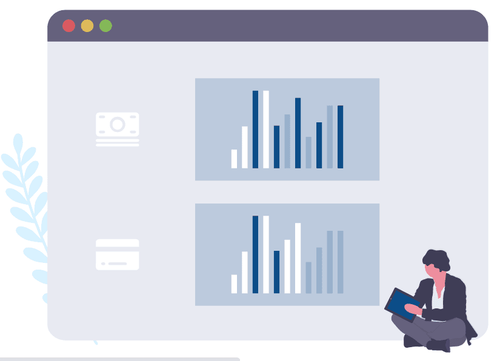Narrow Rally, High Expense Ratio Hurting Actively Managed Funds
- 3m•
- 1,244•
- 24 Apr 2023
The country's best fund managers share their views on what is weighing on active funds and explain why investors shouldn't panic.
India has been one of the few markets in which actively-managed equity schemes did overwhelming better than their benchmarks. However, this trend has been challenged in the past two years, with over three out of four active schemes failing to generate the so-called alpha. Prashant Jain, executive director and chief investment officer, HDFC Mutual Fund has underscored some key factors that explain why active funds have been struggling.
“The last two years have been particularly challenging for active fund managers, as the top five stocks have given the bulk of the returns. By definition, MFs have to invest in 25-30 stocks. That’s one thing that has hurt,” said the star fund manager during a panel discussion organised by Axis Bank to mark the launch of its new private banking platform ‘Burgundy Private’.
The underperformance of the broader market and move to total return index too have weighed on active scheme performance.

Singh, who expects growth to be driven by the private sector, pointed out that more than half of India’s current annual defence production of Rs 80,000 crore already came from private manufacturers. Of this, direct orders to private companies account for Rs 16,000 crore. In addition, the public sector outsources about 40 per cent of its production to private firms.“Small- and mid-caps, where the reasonable part of alpha came from, have fared very poorly. That’s the second thing that has hurt us. The third thing is the move to the total return index. The cost of managing funds has become a genuine disadvantage. An expense of up to 2 per cent in an environment of low returns becomes significant,” said Jain.
Chandresh Nigam, MD & CEO, Axis MF said for the industry to stay relevant, fund managers will have to generate alpha and provide value to their customers. He highlighted that a lot of wealthy investors were showing a preference for alternative investment funds (AIFs), given their exotic nature and increasing opportunities in the unlisted space.
According to a recent study by S&P Indices Versus Active (SPIVA) India, equity large-cap schemes had underperformed the BSE100 index over one-year, three-year, five-year and 10-year timeframes.
Investment experts said the key to generating superior returns was “asset allocation” and taking money out of the table from themes that have performed well and into themes that are available at a discount.
“Most of your money can come from asset allocation,” said S Naren, ED & CIO, ICICI Prudential MF. “Today, if small-caps have done badly, more money has to go into them. Today, if value has done badly, more money has to go into it.”
However, Naren, known for his contra investment style, concurred that this is easier said than done.
“Asset alloction is the easiest way to make money, but the reality is, that at any point of time it is very difficult to take out money from the best-performing fund asset class. In 2017, taking money out of mid- and small-caps was difficult. Today taking money out of quality is difficult,” he said. Naren also said there was a case for investors to increasingly look at global markets as a tool for diversification.
Nilesh Shah, MD, Kotak Mahindra MF said markets will keep going up and down, but investors need to build their portfolios and remain disciplined by staying the course.
No matter where markets are, there is an opportunity for everybody depending on their risk profile, he said.
A Balasubramanian, MD and CEO of Aditya Birla Sun Life AMC, said the crisis on the debt side has been the worst ever but the industry has managed well to contain it.
“This is the worst crisis we have seen. It is worse than (the one) in 2009,” he said. “(The industry) has been managing these issues successfully on a Rs 15-trillion portfolio. Low-quality portfolios will be in the range of Rs one trillion for the industry. Assets under dispute are about Rs 8,000 crore and investments that will have to be completely written off will be around Rs 2,500 crore. It is only a small fraction of the total assets. That’s something investors have understood but still panic,” he said.





